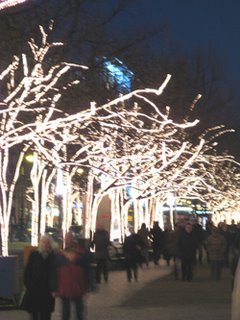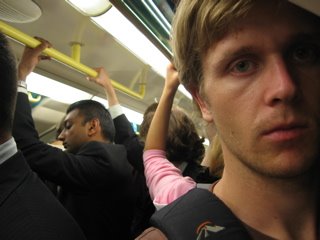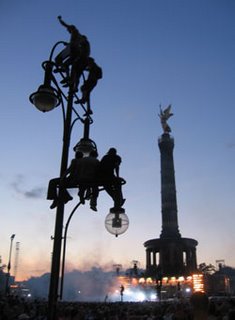There has been extensive coverage in the German media over the last few weeks of the case of Ayhan Sürücü - a turkish-german convicted of the honour-killing of his sister, Hatun, in Berlin last year. The punishment handed down from the Berlin Landesgericht today - a period of imprisonment of nine and a half years - has been particularly heavily criticised.
Berlin's morning paper the
Berliner Morgenpost has printed controversial photos of other family members celebrating the reduced sentence, whilst Germany's most widely-respected national paper, the
Frankfurter Allgemeine, has also weighed in to the argument by featuring a front-page article quoting Berlin Senator, Körting, as saying that "the Sürücü family should leave Germany, if they themselves have any sense of honour ".
Meanwhile, on the other side of Europe, Turkey's most influential newspaper,
Hürriyet, was of the belief that such an intrafamilial honour-killing would have been far more severely punished had it been tried in Turkey - following new regulations introduced there late last year.
The integration of turkish immigrants into german culture has been a not unproblematic one for the german state since the 1960's, when many turkish families immigrated to Germany as part of 'guestworker' programmes. Currently, approximately 2.2 million turkish citizens call Germany home. al
 Yes, it's that time of the year again. And in Europe that can mean only one thing: as much christmas lighting as possible.
Yes, it's that time of the year again. And in Europe that can mean only one thing: as much christmas lighting as possible. Add to this the traditional christmas markets (Berlin's most glitzy, Gendarmenmarkt, is pictured right) and you've got some serious electricity bills for the month of December. The environment can be thankful for small graces however: unseasonably warm weather is keeping heating costs low. al
Add to this the traditional christmas markets (Berlin's most glitzy, Gendarmenmarkt, is pictured right) and you've got some serious electricity bills for the month of December. The environment can be thankful for small graces however: unseasonably warm weather is keeping heating costs low. al






























